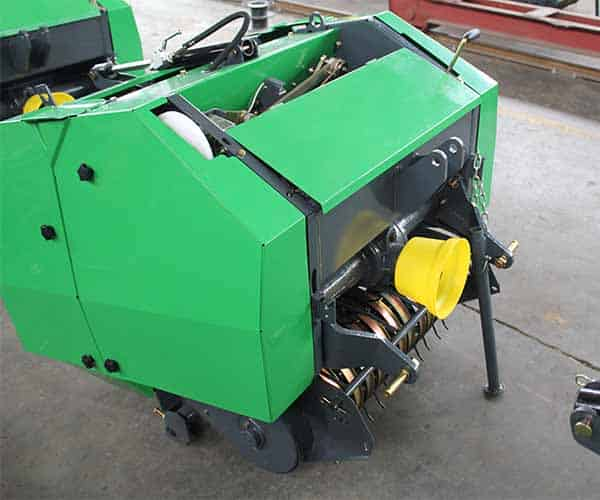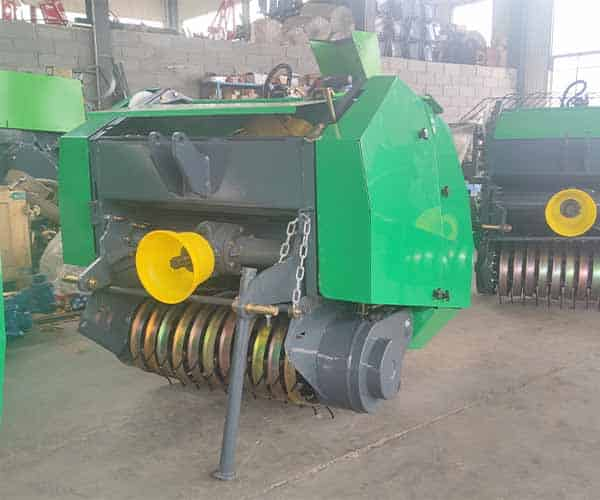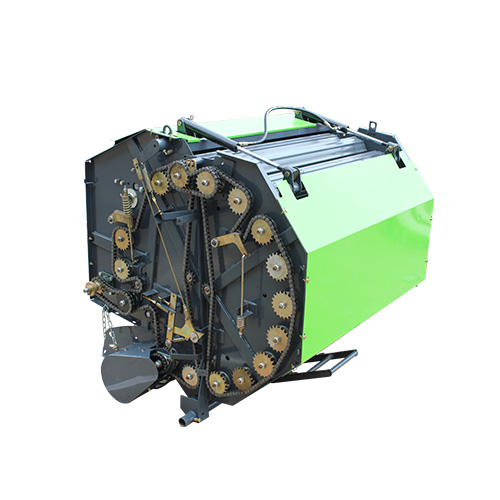Introduction
In the realm of agriculture, efficiency is paramount. With the ever-increasing demand for food production, farmers are constantly seeking innovative solutions to streamline their operations and maximize their output. Among the essential tools that have revolutionized haymaking is the small round hay baler. These compact and versatile machines have become indispensable for farmers looking to improve their hay production efficiency and reduce labor costs.
Benefits of Small Round Hay Balers

Small round hay balers offer a multitude of benefits that make them a valuable asset for any farming operation:
- Increased Efficiency: Small round hay balers significantly reduce the time and labor required for haymaking. They can bale hay at a much faster rate than manual methods, allowing farmers to cover more ground in less time.
- Improved Hay Quality: Small round hay bales are tightly compressed, which helps to preserve the hay’s nutritional value and prevent spoilage. This results in higher-quality hay that is more palatable and nutritious for livestock.
- Reduced Labor Costs: Small round hay balers eliminate the need for manual labor in the baling process. This can result in substantial savings on labor costs, especially for large-scale farming operations.
- Compact Storage: Small round hay bales are compact and easy to store, making them ideal for farms with limited storage space. They can be stacked vertically or horizontally, maximizing space utilization.
- Versatile Use: Small round hay bales are suitable for a wide range of livestock, including cattle, horses, sheep, and goats. They can also be used for bedding and mulch.
Types of Small Round Hay Balers
Small round hay balers come in a variety of types, each with its own unique features and capabilities:
- Fixed-Chamber Balers: Fixed-chamber balers have a fixed bale chamber size, which determines the size of the bales produced. They are typically more affordable and easier to operate than variable-chamber balers.
- Variable-Chamber Balers: Variable-chamber balers allow farmers to adjust the bale chamber size, producing bales of different diameters. This flexibility makes them suitable for a wider range of hay types and bale sizes.
- Round Balers with Net Wrap: Net wrap is a type of twine that is used to wrap the bales, providing additional strength and protection. Net wrap balers are more expensive than twine balers, but they produce bales that are more durable and weather-resistant.
- Round Balers with Twine Tie: Twine tie balers use twine to tie the bales, which is a more traditional method. Twine tie balers are less expensive than net wrap balers, but the bales may be less durable and weather-resistant.
Factors to Consider When Choosing a Small Round Hay Baler

When selecting a small round hay baler, it is important to consider several factors:
- Farm Size and Hay Production Needs: The size of your farm and the amount of hay you produce will determine the capacity and features of the hay baler you need. When choosing a hay baler, it is important to consider factors such as the type of hay you want to bale, how often you want to bale, and more. These considerations will help you determine which hay baler is best for your specific needs.
- Hay Type: Different types of hay have different characteristics, such as density and moisture content. Choose a hay baler that is suitable for the type of hay you will be baling.
- Terrain: If you have hilly or uneven terrain, you may need a hay baler with a lower center of gravity or a wider stance for stability.
- Budget: Small round hay balers vary in price depending on their features and capabilities. Determine your budget before making a purchase.
Comparison Table of Small Round Hay Balers
The following table compares the key features of different types of small round hay balers:
| Feature | Fixed-Chamber Baler | Variable-Chamber Baler | Round Baler with Net Wrap | Round Baler with Twine Tie |
|---|---|---|---|---|
| Bale Chamber Size | Fixed | Adjustable | N/A | N/A |
| Bale Diameter | 48-60 inches | 48-72 inches | 48-72 inches | 48-72 inches |
| Bale Weight | 500-1,200 pounds | 500-2,000 pounds | 500-2,000 pounds | 500-2,000 pounds |
| Capacity | 5-10 acres per hour | 5-15 acres per hour | 5-15 acres per hour | 5-15 acres per hour |
| Price Range | $15,000-$30,000 | $20,000-$40,000 | $25,000-$50,000 | $15,000-$30,000 |
Conclusion
Small round hay balers have become indispensable tools for farmers looking to improve their haymaking efficiency and reduce labor costs. By understanding the different types of hay balers available and considering the factors discussed in this article, farmers can choose the right baler for their specific needs and maximize their hay production output.
FAQs
Q: What is the difference between a fixed-chamber and a variable-chamber hay baler?
A: Fixed-chamber hay balers have a fixed bale chamber size, while variable-chamber hay balers allow farmers to adjust the bale chamber size.
Q: Which type of hay baler is more expensive, net wrap or twine tie?
A: Net wrap hay balers are typically more expensive than twine tie hay balers.
Q: What is the capacity of a typical small round hay baler?
A: The capacity of a small round hay baler typically ranges from 5 to 15 acres per hour.
Q: How do I choose the right small round hay baler for my farm?
A: Consider your farm size, hay production needs, hay type, terrain, and budget when choosing a small round hay baler.
Q: How can I maintain my small round hay baler?
A: Regular maintenance is essential to ensure the longevity and performance of your small round hay baler. Follow the manufacturer’s instructions for maintenance and lubrication.


